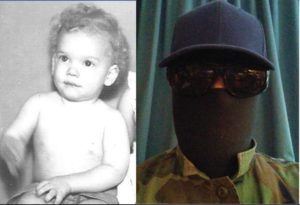“Grammar Nazi” is a term widely used by illiterates in an attempt to demean those who appreciate good speech and writing. It is used by people who do not know–and do not care–what the meanings of the words are.
Grammar “is simply the collection of principles defining how to put together a sentence.” It is the structure–more the internal logic of the structure–of a language. It is not spelling or word meanings or the like; those are the separate issues of orthographic representation of phonemes, and semantics or meaning (the whole reason for language to exist–the transmission of meaning in a clear, comprehendable format).
However, those who reject good grammar also usually reject clear communication in text via orthographic reproductions of phonemes (AKA, “good spelling”), and useful distinctions between words (semantics, or meaning), thus demonstrating that their committment to poor reasoning extends to a committment to poor, fuzzy (or non-existent) reasoning.
Marshall McLuhan was someone whose work I might generally dismiss as, in large part, “academic twinkletoes” bushwah, but I have to admit some of his intellectual BS made some sense (blind pig, and all that). One of his assertions (in Understanding Media, IIRC, though it’s been 45 years since I read his work, and it might well have been in another) was that simply reading the written word (in English, though I believe it works in many other languages, as well, from my own experience) teaches inferential or logical thought–both strict logic,deduction, and induction, as well. The reasons for this seem to center not so much around the semantic content as simply around the structure. . . the grammar.
N.B. The below is more or less a stream of consciousness piece, a rant if you will. So, FWIW, here it is:
Good grammar = sound structure = the internal logic inherent in putting together a sentence that–at the least–has even the remote possibility of making sense. (The rest of the responsibility of “making sense” lies with selecting and using words that can convey the meaning one wishes to convey.)
Here’s an exceptionally minor example of syntax–the essence of grammar at its least form–changing the meaning of a sentence. Note the difference in meaning between:
“the internal logic inherent in putting together a sentence that . . .has even the remote possibility of making sense.”
vs
“the internal logic inherent in putting together a sentence that . . .even has the remote possibility of making sense.”
A minor change in syntax changes the meaning of the words, at least for the careful reader.
And syntax is only one element of good grammar.
Learning the logic of a language, the orthography of a language, and its content (word meanings plus structure of sentences, plus context) and then attempting to reproduce these elements clearly and unambiguously is not a trivial task, nevertheless, it is one that countless folks have accomplished for millennia.
Until the Internet, where doing so is derided by lazy-assed know-nothings who are proud of their ignorance and laziness, and would prefer to demean those who make an effort to use their language well, especially if they should happen to point out that the know-nothing tyrants are wearing no clothes.




